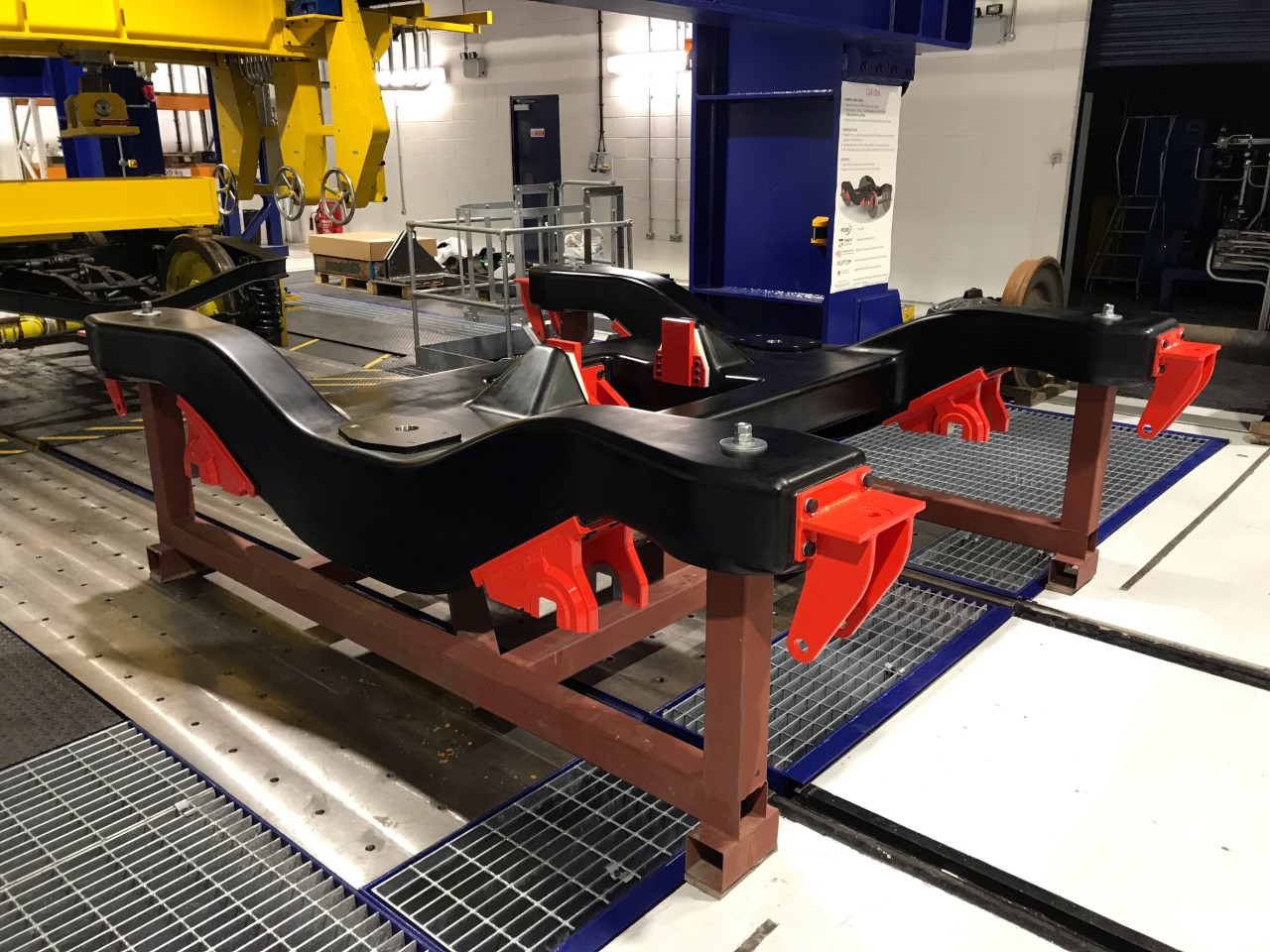
The carbon fibre bogie (CAFIBO) has been developed by Coseley, West Midlands-based ELG Carbon Fibre in collaboration with Huddersfield University’s Institute for Railway Research.
The bogie, made from surplus and recycled carbon fibre materials, was presented to industry delegates at the Railway Industry Association’s (RIA) Unlocking Innovation event at Huddersfield University on December 10, 2019.
Run2Rail to investigate carbon fibre and 3D printed parts for trains
UK research could lead to more efficient freight trains
In a statement, Frazer Barnes, managing director of ELG Carbon Fibre said, “Replacing steel with recycled carbon fibre to produce a rail bogie is a world first so it is a hugely exciting and rewarding project to be part of. We hope to make recycled carbon not only an attractive option for the rail industry in terms of weight reduction but also to eliminate waste and drive down cost.”
According to ELG Carbon Fibre, the new CAFIBO bogie will reduce track wear and infrastructure maintenance costs by reducing vertical and transverse loads on the rails, improve reliability and operational availability through an embedded health monitoring system, and reduce energy consumption.
The bogie is being developed as part of a two-year programme delivered by a consortium of companies including ELG Carbon Fibre, Magma Structures, the Universities of Birmingham and Huddersfield with additional support from Alstom. Over the next few months, the bogie will be tested on HAROLD, the Huddersfield Adhesion & Rolling contact Laboratory Dynamics rig at Huddersfield University.
“There are significant potential benefits from adopting novel materials and construction methods in railway vehicle bogies," said Simon Iwnicki, director of the Institute of Railway Research at Huddersfield University.
“The reduction in mass results in energy savings but can also reduce track forces and improve dynamic performance. I hope that the tests on the CaFiBo bogie being carried out here at Huddersfield will help to encourage the railway industry to accept these new techniques.”




Poll: Should the UK’s railways be renationalised?
Rail passenger numbers declined from 1.27 million in 1946 to 735,000 in 1994 a fall of 42% over 49 years. In 2019 the last pre-Covid year the number...